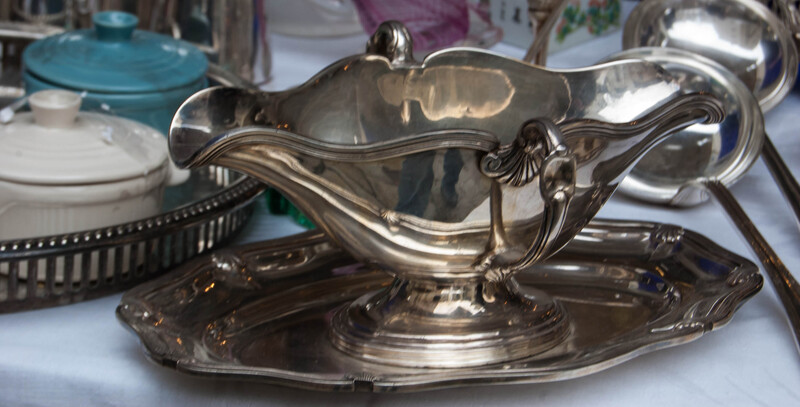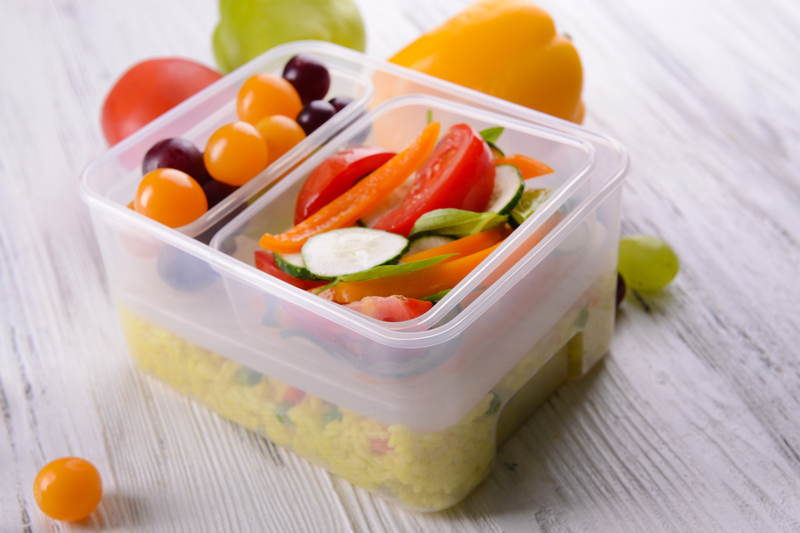Sustainable Solutions for Recycling Unwanted Pots and Pans
The kitchen is the heart of many homes, filled with tools that help us prepare delicious meals. Over time, even the sturdiest cookware--pots and pans--can lose their usefulness, accumulating scratches, dents, or nonstick surfaces worn beyond repair. If you're exploring sustainable solutions for recycling unwanted pots and pans, you're not alone. Rather than letting old cookware end up in landfills, it's possible to give them a new life or dispose of them in an environmentally friendly manner. In this comprehensive guide, we'll discuss eco-friendly recycling options, creative upcycling ideas, and responsible disposal methods for your old kitchenware.

Understanding the Environmental Impact of Discarded Cookware
It's easy to ignore the environmental consequences of tossing unwanted pots and pans, but the reality is significant. Most pots and pans are made from metals like stainless steel, aluminum, copper, or cast iron, and some also have coatings such as Teflon. When they end up in landfills, these materials can take hundreds of years to break down, leaching harmful substances into the environment. Moreover, improperly disposed cookware wastes valuable resources that could otherwise be recaptured and reused.
- Metals: Extracting metals for cookware is energy-intensive, contributing to resource depletion and pollution.
- Coatings: Non-stick coatings can release toxins as they break down or burn.
- Landfill overuse: Bulky pots and pans take up a disproportionate amount of landfill space.
Adopting sustainable practices to recycle old kitchen pots and pans is a crucial step for environmentally conscious households.
Can Pots and Pans Be Recycled?
A common question is: Can I put my pots and pans in the recycling bin? The answer depends on the materials and your local recycling facilities. Unlike common recyclables such as glass bottles and paper, cookware presents unique challenges.
- Pure metal pans: These are typically recyclable, but may need to be taken to a scrap metal facility rather than placed in curbside bins.
- Pots and pans with plastic handles or nonstick coating: These require special processing or removal of non-metal components before recycling.
- Cast iron cookware: Highly valued and easily recyclable at scrap metal centers due to its pure iron content.
Recycling Challenges
Most municipal curbside recycling programs do not accept pots and pans due to their size, shape, and mixed materials. Some nonstick coatings, such as PTFE (Teflon), add complexity to the recycling process. Before recycling, always check with your local waste authority or transfer station for guidance.
Effective Ways to Recycle Unwanted Pots and Pans
1. Scrap Metal Facilities
Most metal cookware, including stainless steel, aluminum, copper, and cast iron, can be recycled at specialized scrap yards. These facilities can handle larger and more complex items than curbside bins.
- Remove any non-metal parts (such as plastic or wooden handles).
- Contact the scrap yard to confirm they accept cookware and ask if you need to prepare the items in a specific way.
- Group similar metals together for easier processing.
Bringing your old pots and pans to a scrap metal recycler not only keeps them out of landfills, it also supports the circular economy.
2. Manufacturer Take-Back Programs
Some cookware brands have implemented take-back or recycling programs as part of their commitment to sustainability. If you're replacing your cookware, check if the manufacturer offers a recycling scheme.
- Contact the brand's customer service or check their website for details.
- Many programs accept their own cookware in any condition, and some will take products from other manufacturers.
- Examples include Calphalon, GreenPan, and other eco-friendly brands.
Participating in these initiatives ensures your unwanted pots and pans are professionally recycled or repurposed.
3. Household Hazardous Waste Events
Some municipalities hold special collection events for household items that aren't easily recycled on a daily basis. These may include electronics, appliances, and sometimes cookware.
- Check your city or county website for upcoming recycling events.
- Verify whether old cookware is accepted and if there are any fees or preparation steps required.
Reuse and Upcycling: Extending the Life of Your Old Cookware
Donating Usable Pots and Pans
If your old pots and pans are still functional but you've simply upgraded, consider donating them. Many local charities, thrift stores, shelters, and community kitchens gladly accept gently used cookware.
- Confirm condition: Ensure items are clean and safe for use.
- Check donation requirements: Some organizations have specific guidelines for what they'll accept.
- Reduce landfill waste: Donation is an excellent way to support your community and promote sustainability.
Creative Upcycling Projects for Old Cookware
For pots and pans beyond their cooking prime, unleash your creativity with upcycling. Repurposing cookware can lead to unique home decor or functional household items, reducing the demand for new materials and giving your kitchenware a second life.
- Planters: Turn deep pots or saucepans into quirky planters for flowers, herbs, or succulents. Drill a drainage hole if needed.
- Wall Art: Lids or frying pans can be painted and converted into decorative wall hangings.
- Bird Feeders: Hang old pans or colanders outdoors to create rustic bird feeders.
- Storage Bins: Large stockpots make sturdy storage bins for tools, craft supplies, or even firewood.
- Candle Holders: Small pans or ramekins can house homemade candles.
Upcycling reduces waste while adding personal flair to your home or garden. Browse online tutorials for step-by-step guides or share your own innovations with the upcycling community!
Responsible Disposal of Pots and Pans That Can't Be Recycled
Sometimes, despite our best efforts, certain pots and pans cannot be safely recycled or reused--especially those with severely damaged coatings or composite materials. In these cases:
- Contact your local waste authority to find out about proper disposal protocols.
- If available, use bulk waste disposal days for large items.
- Clearly label or bag cookware to prevent injury to waste handlers.
Whenever possible, prioritize recycling and upcycling over landfill disposal to reduce your environmental footprint.
Tips for Sustainable Cookware Choices in the Future
One of the best ways to minimize waste is by investing in durable, eco-friendly cookware that lasts decades or generations. Here's how to choose wisely:
- Opt for metal cookware like stainless steel, cast iron, or copper, which are highly durable and recyclable.
- Avoid nonstick pans with PTFE coatings unless they are specifically designed for long life and easy recycling.
- Look for brands with lifetime warranties or take-back programs.
- Choose multi-functional cookware that reduces the need for excessive gadgets and pans.
With informed decisions, you can reduce your kitchen's environmental impact and make future recycling--or upcycling--even simpler.
Local & Global Initiatives Promoting Cookware Recycling
Community Collection Drives
Many towns and cities are realizing the importance of diverting reusable and recyclable items from landfill. Community drives gather unwanted metal goods, including cookware, to be recycled or refurbished before distribution to those in need.
- Some organizations focus on supporting low-income families with free or affordable household goods.
- Check with local environmental groups or social services for upcoming drives in your area.
International Movements
Organizations like TerraCycle offer specialized recycling streams for hard-to-recycle products, sometimes including cookware. These programs typically operate via partnerships between brands and recycling companies, encouraging circular product lifecycles on a larger scale.
- Brands like GreenPan and All-Clad are collaborating with global recyclers to minimize their environmental impact.

Frequently Asked Questions About Recycling Cookware
- Q: Can I recycle Teflon-coated pans?
A: Most municipal recycling programs do not accept nonstick cookware due to the coating. Scrapyards may accept them if the coating is removed. Alternatively, look for manufacturer recycling programs. - Q: What about glass or ceramic cookware?
A: Standard recycling facilities don't usually process these materials. Check for specialty recycling options or consider donation if in good condition. - Q: Can aluminum foil pans be recycled?
A: Yes, if they are clean and free of food residue, they can typically go in your curbside recycling bin, but double-check local rules. - Q: Are cast iron pans recyclable?
A: Absolutely! Cast iron is highly recyclable and welcomed at scrap metal facilities.
Conclusion: Sustainable Solutions for Unwanted Pots and Pans
In a world striving for sustainability, recycling unwanted pots and pans responsibly is a critical act. Whether through metal recycling facilities, take-back programs, donations, or upcycling, there are many eco-friendly options for giving old cookware a new purpose. Reducing waste, conserving resources, and supporting the circular economy starts at home--and your kitchen is a great place to begin.
Before you toss those old pots and pans:
- Research local recycling options.
- Consider donating or creative upcycling.
- Invest in future-proof, sustainable cookware choices.
By following these sustainable solutions for recycling unwanted pots and pans, you'll help protect the environment and inspire others to do the same. Together, small actions in our kitchens can make a big difference for the planet.
Resources & Further Reading
- Earth911: Nationwide recycling locator and tips
- TerraCycle: Innovative recycling programs
- EPA - How Do I Recycle?
Start your sustainable cookware journey today, and watch your environmental impact shrink one pan at a time!
